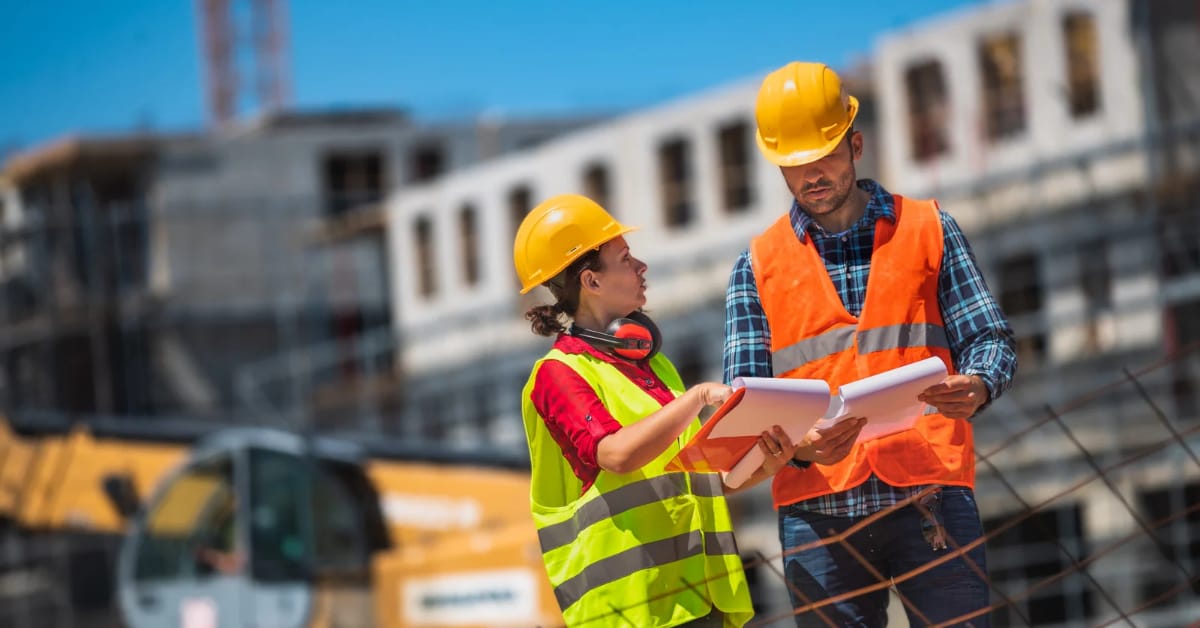 When it comes to keeping buildings efficient, safe, and comfortable, commercial HVAC project management plays a critical role. From planning and design to installation and ongoing maintenance, every stage requires coordination, expertise, and attention to detail.
When it comes to keeping buildings efficient, safe, and comfortable, commercial HVAC project management plays a critical role. From planning and design to installation and ongoing maintenance, every stage requires coordination, expertise, and attention to detail.
This guide breaks down everything you need to know about managing HVAC projects in commercial buildings. Whether you’re a facility manager, contractor, or business owner, understanding the process will help you save costs, meet regulations, and achieve long-term efficiency.
What Is Commercial HVAC Project Management?
Commercial HVAC project management is the process of planning, executing, and overseeing heating, ventilation, and air conditioning projects in commercial properties. This includes:
-
Design and engineering of HVAC systems tailored to a building’s needs.
-
Project planning with timelines, budgets, and compliance requirements.
-
Installation and commissioning of systems.
-
Maintenance strategies to maximize efficiency and lifespan.
The goal is to deliver systems that are reliable, energy-efficient, and compliant with building codes, while meeting the specific requirements of the client.
Why Effective Commercial HVAC Project Management Matters
Managing HVAC projects properly is more than just coordinating contractors. It ensures:
-
✅ Energy efficiency – systems that cut operating costs.
-
✅ Regulatory compliance – meeting environmental and safety standards.
-
✅ Reduced downtime – ensuring businesses continue running smoothly.
-
✅ Improved indoor air quality – creating a safe, comfortable environment.
-
✅ Long-term cost savings – avoiding expensive breakdowns and retrofits.
Without strong commercial HVAC project management, businesses risk delays, overspending, and underperforming systems.
Key Stages in Commercial HVAC Project Management
To succeed in commercial HVAC project management, each stage must be carefully planned and executed.
1. Project Assessment and Planning
-
Identify building requirements (size, usage, energy demands).
-
Conduct site surveys and load calculations.
-
Establish budget, timeline, and performance goals.
2. Design and Engineering
-
Select the right system type (chillers, VRF, rooftop units, etc.).
-
Consider energy efficiency, sustainability, and future scalability.
-
Prepare detailed drawings and specifications.
3. Procurement and Scheduling
-
Source equipment and materials from reliable suppliers.
-
Align schedules with contractors, electricians, and builders.
-
Avoid downtime by planning delivery and installation phases.
4. Installation and Commissioning
-
Oversee installation to ensure compliance with design.
-
Test system performance, airflow, and controls.
-
Verify compliance with local codes and safety regulations.
5. Maintenance and Optimization
-
Implement preventive maintenance schedules.
-
Use building management systems (BMS) for monitoring.
-
Optimize performance for lower energy costs and longer lifespan.
HVAC Project Assessment and Planning for Commercial Buildings
To ensure success, project managers should follow these best practices:
-
Early collaboration – involve engineers, contractors, and facility managers from the start.
-
Clear communication – keep stakeholders updated at every stage.
-
Quality assurance – inspect work regularly to avoid costly rework.
-
Sustainability focus – choose energy-efficient systems to reduce carbon footprint.
-
Data-driven decisions – use analytics to track system performance.
Common Challenges
Even with the best planning, challenges can arise:
-
Budget overruns due to poor cost estimation.
-
Delays from supply chain or contractor issues.
-
Compliance risks if codes and standards are overlooked.
-
Unexpected site conditions that require redesign.
An experienced manager can anticipate these challenges and implement solutions quickly.
Choosing the Right Project Manager
A skilled leader ensures your investment pays off. Look for:
-
Proven experience in large-scale HVAC projects.
-
Knowledge of local regulations and codes.
-
Strong vendor and contractor relationships.
-
Commitment to energy efficiency and innovation.
Conclusion
Commercial HVAC project management is essential for delivering efficient, compliant, and cost-effective systems in any commercial building. From planning and design to installation and long-term maintenance, each stage requires expertise and coordination.
By following best practices and working with experienced professionals, businesses can achieve systems that not only meet today’s needs but are also future-ready.
If you are planning an HVAC project for your commercial property, partner with experts who understand the full lifecycle of system management. The right project manager ensures your building remains comfortable, efficient, and sustainable for years to come.


